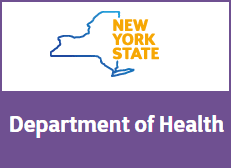Paid Leave Policies for Cancer Screenings
The New York State Department of Health offers resources to help employers develop an effective policy of providing paid leave for employee colorectal cancer screenings (breast and cervical are also covered).
The resources make the case for employers that by providing paid leave for cancer screenings, employers may realize a healthier workforce and be able to reduce expenses on worker compensation and disability costs, replacement costs for ill or injured employees who are absent, and recruitment and training costs for new employees. The website also walks employers through elements of an effective policy on paid leave, such as including union leadership in the process considering Employment Retirement Income and Security Act (ERISA) requirements.
Thank you to NCCRT Steering Committee member Dr. Heather Dacus for sharing these resources.
Evaluation: The content and messaging was developed based on information gathered from literature searches and from feedback from contractors implementing paid leave about common barriers they encountered when promoting the work.
Permissions: Made publicly available online through the New York State Department of Health.
Publication date: May 2016
Post date: September 20, 2017
Contact: Email comments, questions, and suggestions to [email protected].
Explore More

Blue Star Conversation: April 15, 2025
This Blue Star Conversation covered, "Modeling the Impact of Colorectal Cancer Screening and Timely Follow-Up Colonoscopy: Recent Data from the Cancer Intervention and Surveillance Modeling Network (CISNET)"

ACS Webinar: Cancer Prevention and Screening for Community Health Centers
This webinar focused on health centers and covered the current state of colorectal cancer, the urgent need for screening patients age 45-55, and a review of tools and resources available.

Clinician’s Reference: Stool-Based Tests for Colorectal Cancer Screening
This revised resource is designed to introduce (or reintroduce) clinicians to the value of stool-based testing for colorectal cancer.
